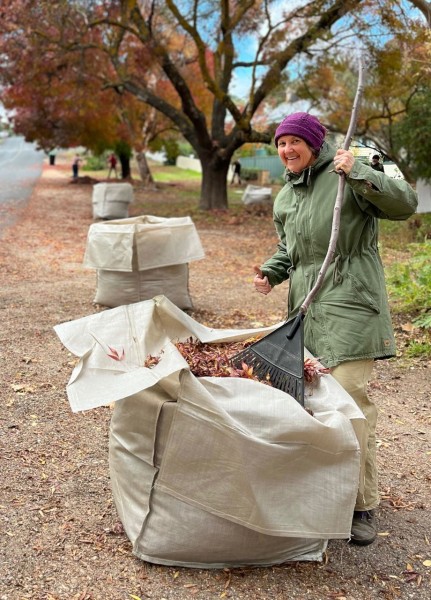“Did you see the wind today, blow the autumn leaves away? From on high they fluttered down, some were red and some were brown”.
The magic of autumn and the childhood fun of playing in leaf piles has not left me, but I now see another magical thing about the blanket of leaves falling on the ground, a wonderful, local, free source of carbon-rich composting material.
Dry leaves are a fantastic addition to our compost pile and most leaf types break down quicker than other carbon-rich ingredients in our compost. Paper, cardboard and pure woodchips are very carbon-rich, but don’t have the nutrients that leaves have to feed our composting microbe friends.
Some leaves, like plane tree leaves, have a bad reputation for matting in compost, being overly waxy and not breaking down.
I like to collect a diversity of leaves, partly to get the different nutrients from different trees, but also to get the different textures and shapes that fill the gaps in our compost pile.
A small amount of plane tree leaves in a mix of other leaves and blended in a balanced compost will break down perfectly well, but steer clear of too many of them. There are lots of other leaf options.
In autumn I try to collect a year’s supply of leaves to add to my compost pile. For me this means two bays made from pallets, filled and stamped down tight and with corrugated roofing over the top to keep them dry.
For a single household doing cool composting in a Gedye-style bin, you might get away with a few hundred litres of compressed leaves to add to your compost over the year. My friend Kat Lavers stores her year’s supply of autumn leaves compressed dry in a few old olive barrels.
If we let our stored leaves get wet, they will break down into leaf mold, which is like a compost made with just leaves. Leaf mold is a wonderful medium for potting and seed raising mixes but is not as good as dry leaves in our compost as it has already done most of its breaking down.
At YIMBY we have regular autumn leaf collecting sessions with our composters and friends to stock-pile this great resource for the year ahead. Combined with straw from local grain farmers and some chopped up, carbon-rich materials from our gardens, we are able to balance the 700 kilos of food scraps we collectively process each week to make super-rich compost.
If you are in Castlemaine and are raking up dry leaves, and don’t know what to do with them, consider donating them to one of our YIMBY composters, or, of course, compost them yourself.
– Joel Meadows works with *Yes In My Back Yard, (YIMBY), a community-scale composting initiative in Castlemaine and surrounds. Send questions or comments to hello@yimbycompost.com, or to book in for a compost workshop!








